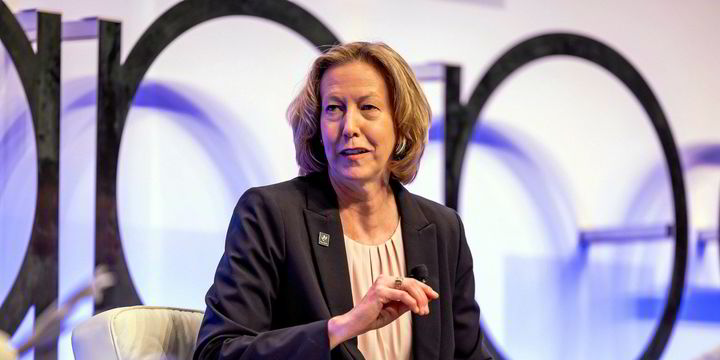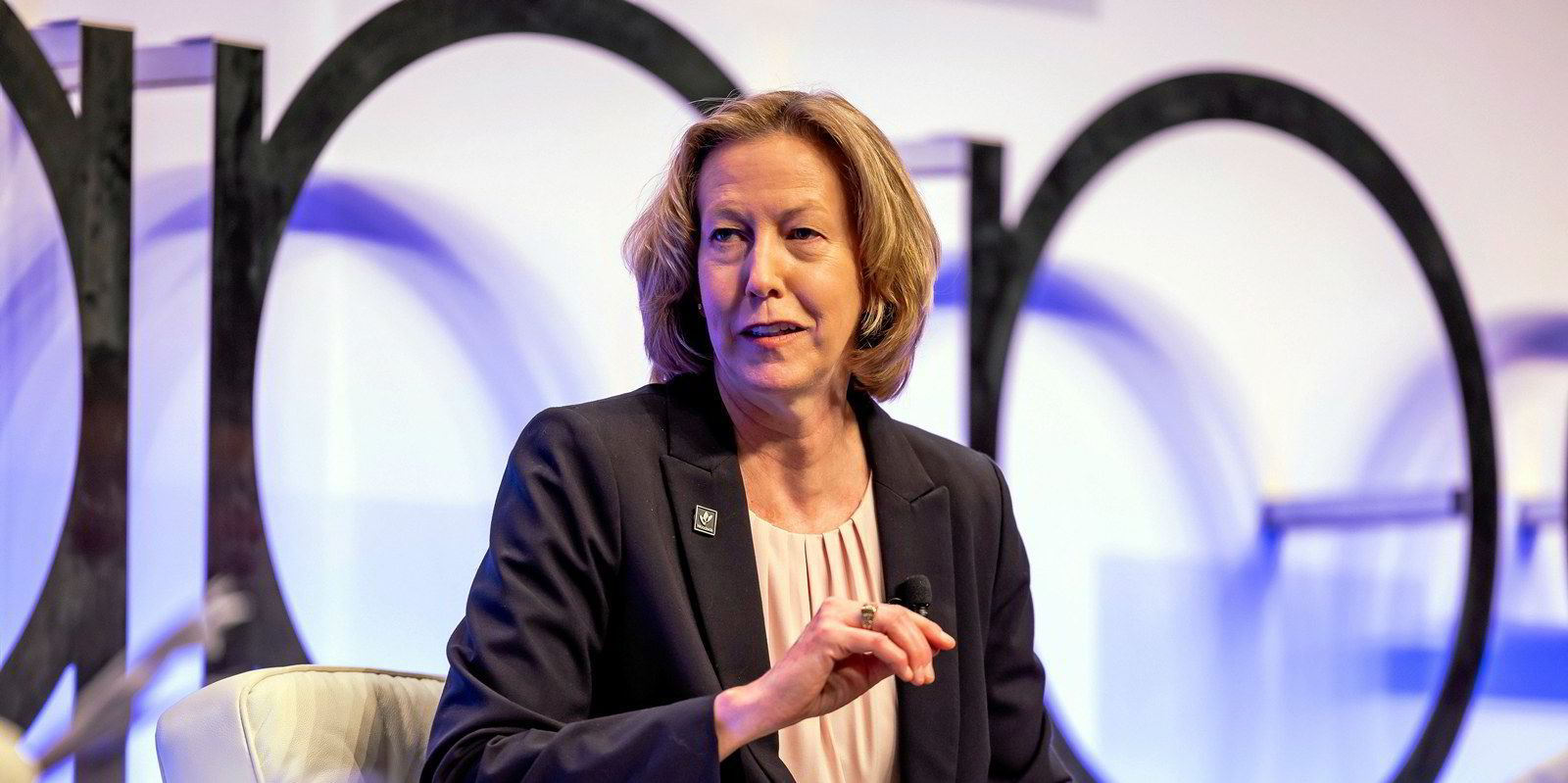Woodside Energy chief executive Meg O’Neill has slammed extremists who are doing the damnedest to scupper under development and new gas projects in Australia, the region’s largest liquefied natural gas exporter.
Addressing the National Press Club in Canberra, O’Neill said that development of Australia’s gas industry has only been possible with the support of international investors and customers looking to secure their own energy supplies. But now they are questioning whether Australia still wants their investment.
“A vocal minority wants to shut down the industry and the jobs and livelihoods that go with it. They have deep pockets and are using both protest action and the courts to create uncertainty and destabilise regulatory processes to frustrate existing and new projects,” she said.
“We respect every Australian’s right to express their opinion – and we share the commitment to decarbonisation – but extremism is not the answer. We need confidence in stable regulatory outcomes, or we risk choking our energy industry, impacting both domestic and international supply,” added O’Neill.
“This concerns our regional partners, who depend on current Australian gas projects to help them meet their decarbonisation commitments and to keep the lights on in Asian megacities.”
O’Neill said that the challenge, as she sees it, is for Australia to use its vast natural gas resources for three interrelated goals: To provide affordable and reliable energy for Australians, to maintain strategic partnerships and regional energy security, and to progress global decarbonisation.
Article continues below the advert
“We want to develop new projects in Australia, across both hydrocarbons and new energy opportunities, but that will only be possible if policy settings provide the certainty to underpin long-term investment.”
Securing future investment
During 2022, the world experienced what the International Energy Agency has termed “the first truly global energy crisis” and Australia, for all its vast natural resources, was not immune.
“Those who can least afford it have felt it most acutely, sometimes having to choose between food and heating through winter. This should not be happening in Australia. Australians should be able to expect reliable energy. That needs to come from having the right investment climate – rather than arbitrary market intervention – and the right honest conversations between all participants in the energy system,” said O’Neill.
But, she said, a longer-term view is needed to ensure new supply will be there to meet anticipated demand.
“Woodside and other companies are actively considering what we might be able to do to help – from infrastructure to enable LNG imports, to buildout of gas storage – but we also know these can only be progressed in concert with government.
“[This] requires a clear investment framework and regulatory certainty to attract the capital from international markets that is needed for large-scale projects.”
The same partners who invested in Australia’s gas projects can provide the capital to develop lower-carbon hydrogen and renewable projects, but only if they consider it a secure investment, added O’Neill.
“For Australia to remain an attractive destination for global capital, fiscal and regulatory certainty is paramount.
“We urge the government, in any changes to the tax framework, to consider the long-term and preserve Australia’s ability to attract the next generation of investment, jobs and energy supply,” said O’Neill.
“In terms of regulatory certainty, agreement on clear processes and response times for project approvals is essential to unlocking reliable supply. Otherwise, energy investment will find another home, taking jobs and opportunities with it.”
Gas in tandem with renewables
Globally, we are going to need to use all the tools to address climate change while advancing developing economies, Woodside’s chief executive said.
“That’s going to require rapid scale-up of renewables and investment in ongoing gas supply as existing gas fields deplete.”
Even in its Net Zero Emissions scenario, the Paris-headquartered IEA has estimated an average of US$365 billion of upstream oil and gas investment is needed every year to 2030, and US$171 billion every year thereafter to 2050.
“When used to generate electricity, natural gas emits around half the life cycle emissions of coal. Gas is a flexible source of energy and provides a stable baseload,” she added.
Australia’s federal government is targeting increasing the share of renewables in the electricity grid to 82% by 2030, leaving an 18% gap that could be filled by natural gas. However, today gas-fired power only accounts for 7% of the national energy market.
O’Neill admitted that Australia’s gas industry needs to do more to reduce emissions but that it is moving in the right direction.
“We employ engineers – creative, practical problem-solvers, who are prioritising this challenge – and commercial analysts, who are figuring out ways to finance it,” she said.
“We have geologists, who used to explore for new oil and gas reservoirs, who are now looking at how we can safely inject and store carbon dioxide in depleted reservoirs.”
However, in the absence of certainty at a national level, Australian states have implemented complex and conflicting regulations for emissions reduction, moving away from the concept of tackling the lowest-cost abatement options first, and adding to the cost of doing business… not just for energy producers, but for all industrial segments, O’Neill commented.
Getting it right in future
“You might guess from my name that I’m of Irish heritage. I grew up in Boulder, Colorado, (in the US) but my Nanna grew up in a village in County Mayo, in Western Ireland, with no electricity – relying on a peat fire for heating, cooking and light,” O’Neill shared.
“As a society, we have come a long way since then, in just two generations. And we should not be regressing. We should instead be extending access to electricity to hundreds of millions of people in the developing world who still live without it. To do that, we need new supplies of affordable and reliable energy.”
However, against that backdrop, there is the need to decarbonise which will require the rapid scale-up of renewables alongside investment in ongoing gas supply as existing gas fields deplete.
Woodside is aiming to spend US$5 billion by 2030 to progress new energy opportunities and lower-carbon services.
Admitting the Australian company – which was founded in 1954 – historically has not always “got it right” in its relations with First Nations peoples, O’Neill said the company is on a journey in its relations with First Nations peoples and “working to get it right” by listening to and learning from these peoples.
“For Woodside, a big part of this is working with the Traditional Owners of Murujuga, in northern Western Australia, where our largest Australian operations are based,” she said.

